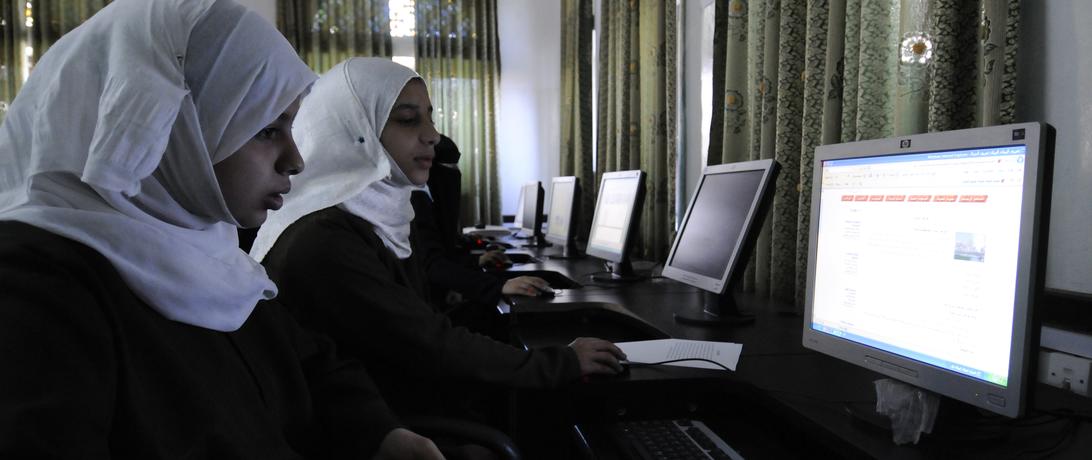
This blog is the third of a three-part series which examines the crisis in Yemen through the lens of Women, Peace and Security.
Our Secure Future seeks to promote and raise the voices, thoughts and policy opinions of women around the globe-- particularly when it comes to security, conflict prevention and resolution, and peace. As a guest blog, the views expressed in this publication do not necessarily reflect the views of Our Secure Future or One Earth Future. This blog is the third of a three-part series which examines the crisis in Yemen through the lens of Women, Peace and Security.
Gender-Based Violence (GBV) has always been common in Yemen. The current conflict has only intensified these problems; as between March and September 2015 there was a 70% increase in GBV. Additionally, 90% of women faced sexual street harassment, particularly at checkpoints, if a male guardian is not present with them. This is due to the lack of specific legislation, low confidence in the police as well as social acceptance. Sexual street harassment restricts the freedom of movement of women, and potentially interrupts them from attending school or going to work.
Cultural norms and stigma related to sexual violence crimes discourage survivors from reporting and seeking necessary medical and psychosocial services. Some survivors suffer from complications stemming from physical injury, HIV contraction, and sexually transmitted infections, which could be prevented if they were able to access appropriate care. A lack of education and tremendously low literacy rates between women has impeded them from taking the proper medication and accessing healthcare facilities.
These cultural norms, along with inadequate health care services, have exacerbated mortality rates of infants and women. Some hospitals had to deny women access because they were at capacity due to the number of casualties from war. It is impossible for a society to restore peace or stability when half of its population lives in daily fear of rape or other forms of sexual assault, particularly when the perpetrators of such crimes are not held responsible.
These challenges did not stop women from being the first ones to march in the streets of Yemen to oust authoritarian president, Ali Abdullah Saleh. According to sociologist Wendy Pearlman, the freedom of agency after years of repression allows the “first-movers'' of a revolution to experience a sense of gratification. Tawakkol Karman, a Yemeni woman who was awarded the Nobel peace prize in 2011 for her role in the revolution, was one of the first to protest on the streets. She successfully led a “day of rage” where many Yemenis joined her and demanded the resignation of President Ali Abdullah Saleh.
In response to Tawakkol Karman’s success, the former President spoke out to the public against the mixing of men and women on the streets. When I spoke to her sister, Safa Karman, the first Yemeni graduate from Harvard Law School, she said, “The easiest way to affect a woman in Yemen is to ruin her reputation.” In response to the President’s words, countless families in Yemen denied their daughters, and other female family members, to take part in the protests. The president’s speech illustrates the message behind Hudson’s book, The First Political Order, as sexual political order was used by an authoritarian figure in an attempt to maintain the status quo of the state.
According to Safa, “Tawakkol’s power lay in her ability to completely disassociate herself with femininity and gender.” She demanded justice and democracy, without focusing solely on women’s rights, and that enabled her to garner a wide spectrum of supporters including men and women. Additionally, she maintained a modest physical appearance; she did not wear any makeup and kept the hijab on her head. Her sister describes her as “tough, strong and aggressive”; adjectives usually seen as masculine characteristics. According to sociologist Ann Oakley, “Making a distinction between sex and gender had the clear advantage of permitting connections to be made between inequitable social structures.” When gender is not part of the discussion, it becomes easier to discuss human rights and politics in Yemen. This maintains the status quo of male dominance and female subservience, even in the situation of war.
The last major peace talks regarding Yemen took place in Stockholm in December 2018 and had only one woman at the table between the two hostile groups. According to Karman, women are not represented in any peace talks because they are not wanted or accepted in any political party in the domestic scene. She says, “Right now, the war is a masculine thing, so whatever comes out of the war will be masculine.”
The peace talks dwelled on political and territorial matters, rather than economic and social issues that affect the population at large. As Ambassador Donald Steinberg explained in his article, Through the Looking Glass, without women’s participation far less priority is given to the importance of people’s welfare. The agreement achieved much less than what the UN reported and the lack of progress has only increased the hostility between the two groups. The exclusion of women from the peace process, governance bodies and other arenas of decision-making will result in poor long-term outcomes both for gender equality and for post-conflict recovery and stability.
Article Details
Published
Written by
Topic
Program
Content Type
Opinion & Insights